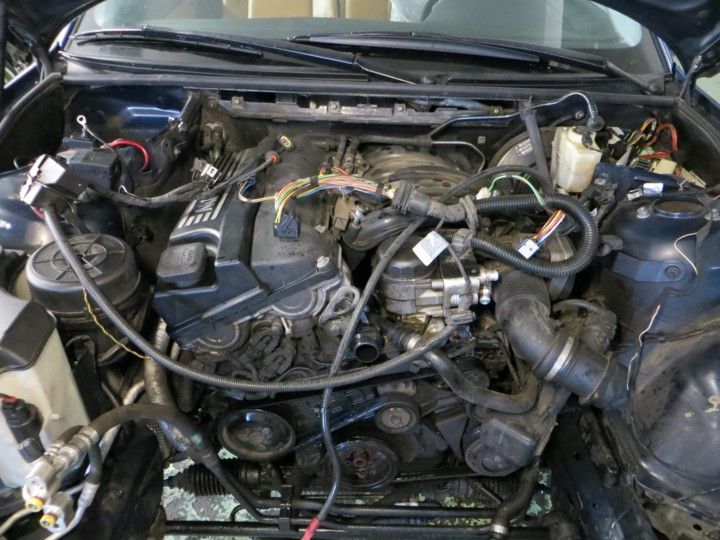Preserving Your BMW 318ti: Vital Tips for Longevity
Preserving Your BMW 318ti: Vital Tips for Longevity
Blog Article
Vital Factors To Consider for Choosing the Finest Engine for Your Needs
In the realm of selecting the perfect engine to satisfy your needs, several important factors need precise consideration to ensure optimum efficiency and performance. From the nuanced equilibrium between power and efficiency to the often-overlooked facets of upkeep and service needs, each aspect plays a crucial role in figuring out one of the most appropriate engine for your particular demands. As the intricacy of engine technologies remains to evolve, discerning one of the most suitable alternative demands a deep understanding of the interplay between various factors to consider. By checking out the complex internet of aspects that underpin this decision-making process, a clearer course arises in the direction of choosing an engine that not just fulfills however exceeds your assumptions.
Power and Performance
When assessing engines for optimal efficiency, it is critical to prioritize both power output and efficiency. Power outcome measures the capability of an engine to produce energy, which directly impacts its efficiency. A high power result is crucial for requiring tasks such as high-speed requirements or heavy-duty applications. It guarantees that the engine can handle the workload efficiently and effectively. Power alone is not adequate; effectiveness plays a significant duty in establishing the overall performance of an engine. Efficiency refers to just how well the engine converts fuel into useful power. A much more reliable engine will supply better gas mileage, lower exhausts, and lowered operating expense. Striking the right equilibrium between power result and effectiveness is vital to picking an engine that meets your details demands. It is vital to think about variables such as the meant usage of the engine, ecological influence, and lasting expense effects when making this choice. By thoroughly evaluating both power and performance, you can choose an engine that provides ideal efficiency and meets your requirements properly.
Gas Effectiveness and Economic Situation
Gas performance refers to the engine's ability to transform fuel into power with very little waste, directly impacting operating expenses and environmental sustainability. Engines with greater fuel effectiveness not only minimize gas expenditures but likewise reduce carbon discharges, contributing to a greener procedure.

Compatibility and Application
Considering the fuel effectiveness and economic climate of an engine, the next critical facet to address is its compatibility and application within particular operational contexts. Compatibility refers to exactly how well the engine incorporates with the total system or tools it powers.
Various engines are designed for certain functions, whether it be industrial machinery, marine vessels, vehicles, or power generators. Understanding the intended application permits for the selection of an engine that can provide the required power result, torque, and functional features.
Maintenance and Solution Needs
Upkeep and solution demands play an important role in making certain the durability and ideal performance of an engine. Regular maintenance is important to avoid break downs, extend the life-span of the engine, and preserve its effectiveness. When choosing here are the findings an engine, it is essential to think about the producer's recommended upkeep timetable and the availability of solution facilities or certified technicians.
Factors such as the regularity of oil modifications, filter replacements, and total evaluations can considerably affect the engine's efficiency. Some engines may call for even more frequent servicing based upon their style and usage, while others might have longer intervals between maintenance checks. It is vital to comply with these service needs to avoid expensive repairs and unforeseen downtime.

Expense and Budget Factors To Consider
Budget restrictions often play a significant duty in the decision-making procedure when picking an engine for a particular application. When taking into consideration the expense and budget implications of choosing an engine, it is important to analyze not just the first purchase price but additionally the lasting expenditures connected with upkeep, fuel intake, and prospective upgrades or fixings. It is important to strike an equilibrium in between the ahead of time price of the engine and its total lifecycle prices to make sure that the chosen engine remains economically lasting throughout its operational life expectancy.
Elements such as gas effectiveness, integrity, and resilience can straight influence the overall price of ownership of an engine. While a more expensive Go Here engine might have higher upfront prices, it can potentially result in lower upkeep and gas expenditures over time, therefore supplying much better value in the long run.
Conclusion

Gas performance refers to the engine's capacity to convert gas right into power with minimal waste, directly affecting operating expenses and environmental sustainability.Variables influencing fuel effectiveness include engine design, burning efficiency, and general efficiency optimization. Additionally, picking the proper fuel type and grade as suggested by the engine producer can better enhance performance and lengthen engine life-span.
Engines with great utility features and conveniently available parts can decrease upkeep expenses and reduce the time the engine is out of procedure - bmw 318ti. It is vital to strike a balance between the in advance price of the engine and its total lifecycle prices to ensure that the chosen engine continues to be financially lasting throughout its functional lifespan
Report this page